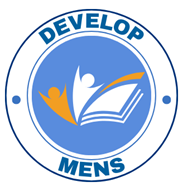Self-Determination Theory (SDT) is a psychological framework that explains what drives people to act, grow, and thrive. Developed by Edward Deci and Richard Ryan, the theory emphasizes the importance of three basic psychological needs: autonomy, competence, and relatedness. When these needs are fulfilled, individuals experience stronger motivation, better mental health, and a higher sense of well-being.
-
Autonomy means having the freedom to make your own choices and control your actions.
-
Competence refers to feeling capable and effective in your activities.
-
Relatedness is the sense of connection and belonging with others.
Unlike motivation that comes from external rewards or pressure (extrinsic motivation), SDT focuses on intrinsic motivation—doing something because it is interesting or personally meaningful. This kind of motivation leads to deeper engagement, better performance, and more lasting change.
In education, work, or personal development, environments that support these three needs tend to foster creativity, initiative, and emotional resilience. On the other hand, when autonomy is restricted, people feel controlled or unmotivated.
In short, Self-Determination Theory helps us understand how to create conditions where people feel free, capable, and connected—key ingredients for a fulfilling life.
Why Is SDT Important?
Understanding SDT can help us:
-
Design better learning environments, where students feel empowered and confident rather than bored or pressured.
-
Improve workplace culture, by encouraging employee initiative and personal responsibility.
-
Support mental health, as fulfilling the basic psychological needs is linked to greater emotional well-being.
-
Strengthen personal relationships, by fostering open communication and emotional support.
-
Encourage healthy habits, because people are more likely to stick with behaviors that align with their values and personal goals.
Real-Life Applications of SDT
-
In education, teachers who support autonomy by giving students choices and encouraging curiosity see better academic outcomes and more engaged learners.
-
In parenting, children develop better self-esteem and decision-making skills when they are guided, not controlled.
-
In workplaces, employees thrive in environments where they feel trusted, challenged, and part of a team.
-
In youth development, programs that emphasize self-awareness, personal responsibility, and community connection—like the DevelopMENS MOOC—equip young people with the tools to grow with confidence.
Self-Determination and Youth Development
For young people, developing autonomy, competence, and relatedness is crucial for a successful transition to adulthood. Whether in school, at work, or online, they face pressure to perform, conform, and succeed. SDT offers a healthier alternative—growth that is self-driven, meaningful, and sustainable.
The DevelopMENS project applies SDT directly in its educational modules, helping participants understand their motivations, reflect on their goals, and build essential life skills. Through interactive exercises, real-life examples, and peer discussions, learners are encouraged to take ownership of their development.
Practical Applications in the DevelopMENS Project:
In the context of the DevelopMENS MOOC, SDT is used as a foundation to promote youth personal and social development. The course:
-
Helps young people understand what drives their motivation and how to apply SDT principles to improve decision-making, confidence, and relationships.
-
Provides interactive tools, including videos, quizzes, and case studies, to explore autonomy, competence, and relatedness in real-life situations.
-
Encourages learners to apply SDT in educational, personal, and professional settings to enhance goal-setting, self-awareness, and well-being.
SDT is not just a theoretical framework—it is a practical guide for fostering independence, building skills, and cultivating meaningful connections in everyday life.
Final Thought
Self-Determination Theory teaches us that motivation doesn’t have to come from rewards, grades, or approval. It can come from within—when we feel free to choose, capable of growing, and connected to others. Supporting these needs in ourselves and those around us is one of the most effective ways to create motivated, confident, and resilient individuals.


